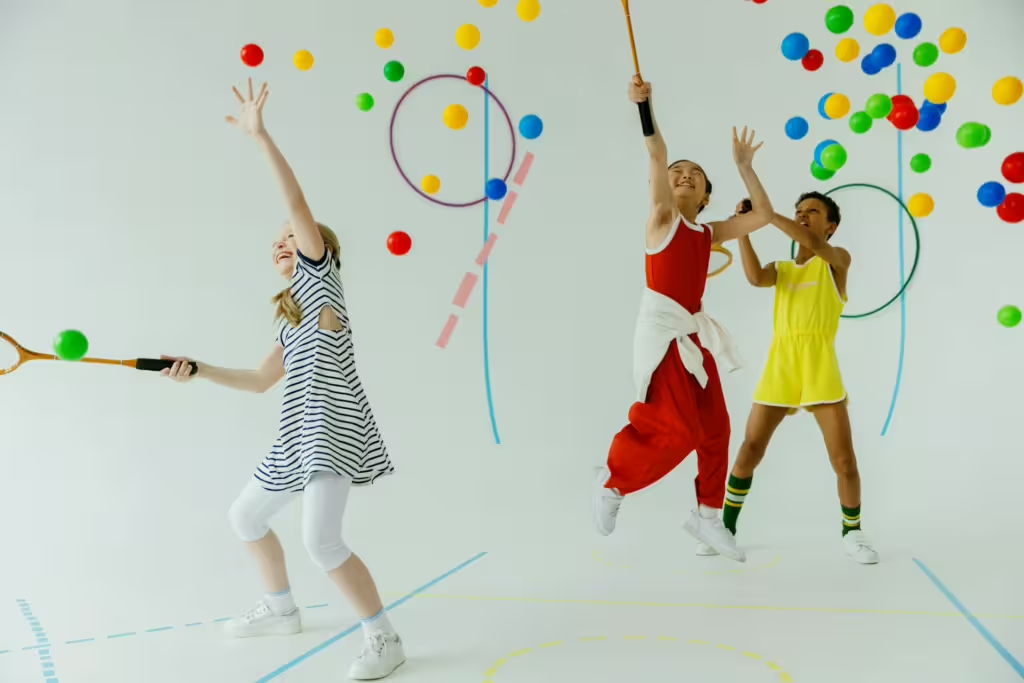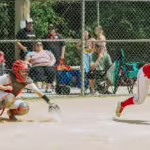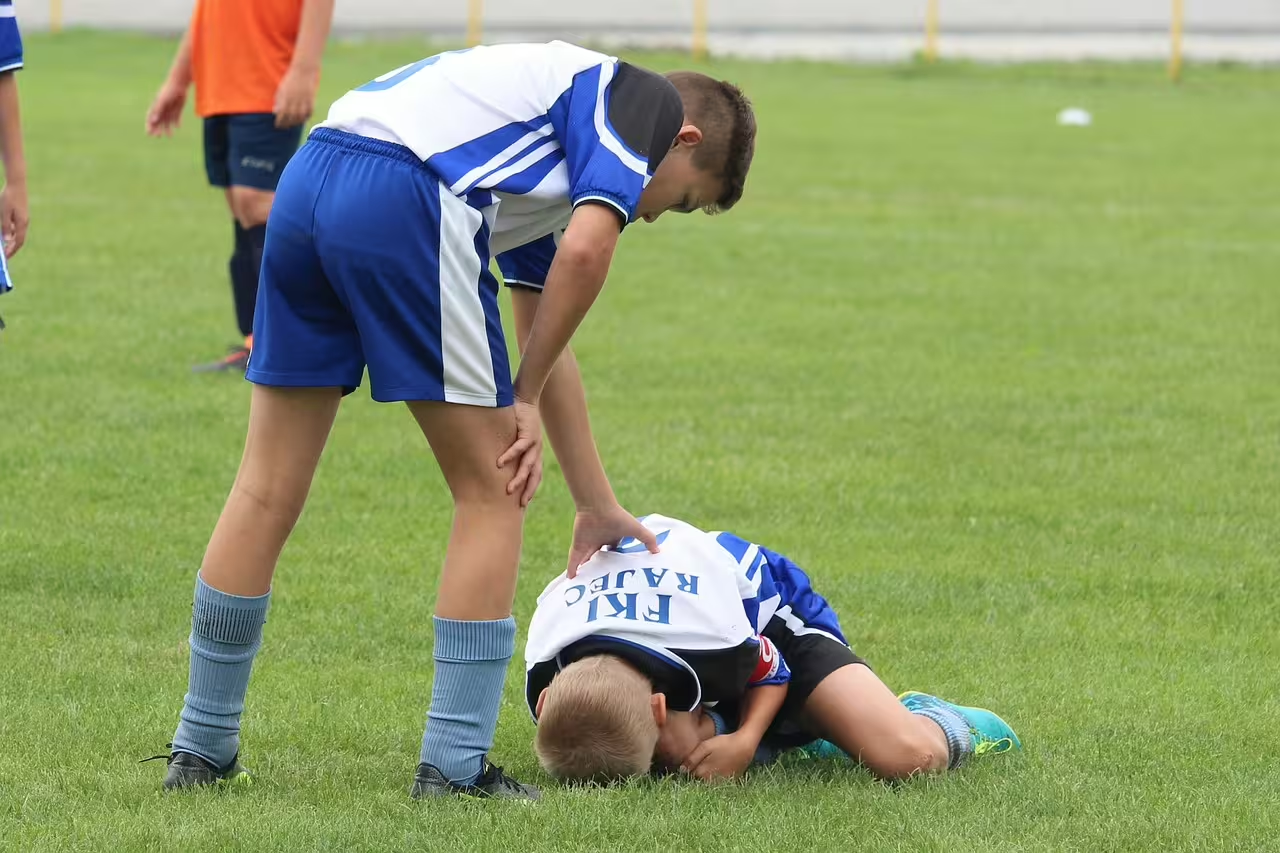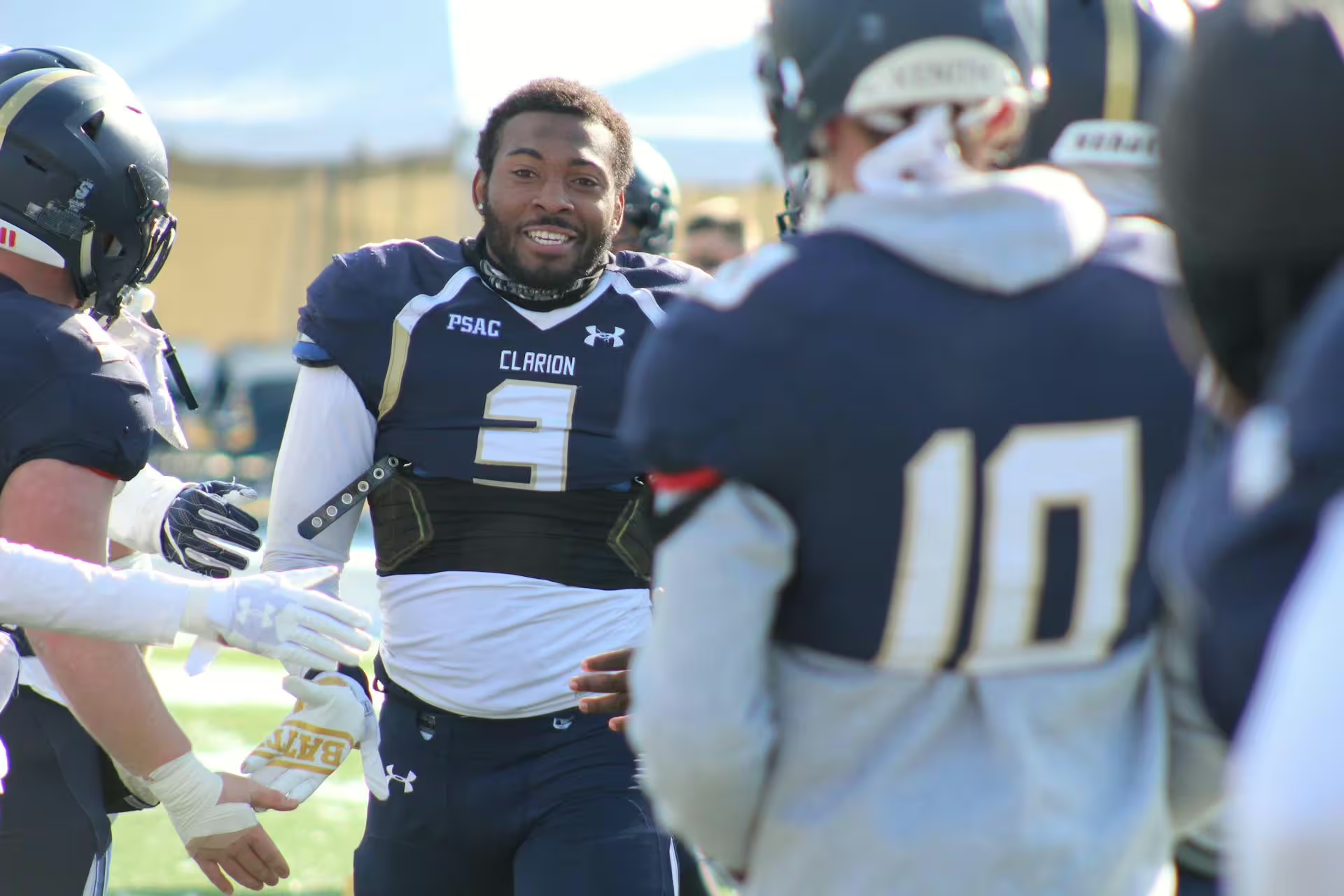Those of us who live the sports lifestyle or who have played sports in our youth understand that sports are more than just games. In many ways, youth sports are a vital part of growing up. Children who participate in sports gain confidence, build social connection, and develop a love for physical activity that can contribute to lifelong health. Sports are a means of fostering personal growth, teamwork, and resilience. At the same time, their structured nature helps kids to develop discipline, time management skills, and a sense of responsibility, all of which contribute to their overall development.
Thus, for children of all abilities and backgrounds, participating in youth sports can be a truly transformative experience. Unfortunately, not all children have equal access to sports programs. There are many barriers out there that might prevent them from participating, things like financial constraints, disabilities, lack of facilities, and even social stigmas. Children with disabilities, for example, are near the top of the list when it comes to lack of access. These kids, many of whom are more than keen to join a sport, might struggle to find adaptive programs that accommodate their needs. At the same time, kids from low-income families might not have the resources to afford the equipment, uniforms, or registration fees that some sports require.
Finally, whether we like it or not, there are gender disparities out there that continue to limit opportunities for young female athletes in many communities. Many of these small-minded people continue to rely on outdated stereotypes about athletic ability and participation that keep them from accepting girls or LBTQ individuals in sports.
In this article, we will discuss the value of inclusive sports. We will explore the importance of inclusive sports, the benefits they provide to children, and how parents and communities can advocate for them. We will teach parents the methodology behind sports advocation and how they can support accessible athletic programs for all children in their community.
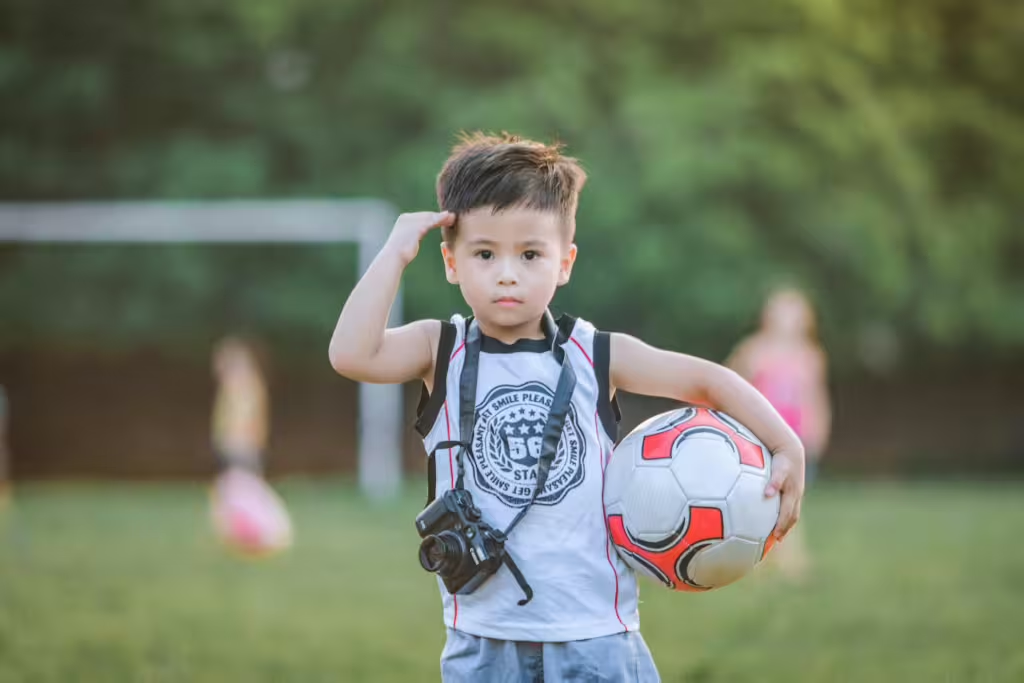
What Are Inclusive Sports?
An inclusive sport is one that utilizes some combination of adaptive equipment, financial assistance, specialized coaching and or rulesets, and more. These elements come together as a means of bridging the gap in accessibility that some children face. In essence, inclusive sports are there to ensure that every child—regardless of ability, socioeconomic status, or background—has the opportunity to play. These sports are essential in that they create a more equitable and positive environment for young athletes. They are meant to promote diversity and inclusion, as well as foster a sense of belonging among children who might otherwise feel excluded.
Not everyone has the same advantages as eveyrone else; it’s a sad fact about society as a whole and a commentary on the inequality inherent in our current culture. But we are not here to solve the world’s problems. We are here to find ways to circumvent that inequality when it comes to youth sports, and thankfully, there is something we can do in that regard.
Breaking Down Barriers
First, we need to examine the many obstacles that prevent some children from participating in traditional sports programs. These barriers include, but are not limited to:
Physical Disabilities – Sadly, many sports programs are not equipped with adaptive equipment to accommodate children with physical or mental disabilities. At the same time, few organizations have staff members who are trained to coach or care for such individuals.
Financial Hardships – There’s no denying that youth sports is an expensive enterprise…most of the time anyways. The cost of registration, equipment, and travel can make organized sports all-but-inaccessible for lower-income families or those facing even temporary financial hardships.
Gender Stereotypes – Sadly, our society is not as enlightened as many of us would like it to be. As a result, some girls and non-binary children face limited opportunities in terms of participating or even engaging with youth sports. Even those who do have some opportunities might still face societal discouragement from participating in certain sports.
Cultural and Language Differences – Unfortunate as it sounds, some families from different cultural backgrounds still struggle to find youth sports programs that align with their values. Still others may simply not feel welcomed by the prevailing community.
This is where inclusive sports are helpful. In designing sports programs that address these challenges, communities can ensure that every kid has the opportunity to experience the joy and benefits of playing sports.
The Benefits of Inclusive Sports
It should be noted that when sports programs prioritize inclusivity, they provide significant benefits to all of the children that have the opportunity to participate. What we mean is, not just the children facing barriers are getting a bump. These sports help everyone to have more fun and help introduce kids from many different walks of life to the joy of organized sports. Here’s an accounting of how inclusive sports positively impact young athletes:
Physical and Mental Health Benefits
Developmentally speaking, engaging in regular physical activity helps kids to develop strength, coordination, and endurance from a young age. This means that playing sports can reduce the risk of childhood obesity and improves cardiovascular health. Regular exercise also strengthens a person’s immune system. Even beyond the physical advantages, though, sports participation is linked to good mental health. Kids can benefits from the reduced anxiety, improved self-esteem, and better stress management that engaging with sports provides.
Social Development and Friendship
Sports are inherently a social activity, whether your child is playing a team sport like soccer or an individual sport like gymnastics. This means that even there creates a natural environment for children to learn teamwork, cooperation, and vital communication skills. They get a chance to bond over a shared interest, shared victories, and shared setbacks. When sports programs are inclusive, they will inevitably foster friendships between children of different abilities and backgrounds. This, in turn, helps kids develop empathy, understanding, and acceptance; three things that we need more of in this world.
Increased Confidence and Self-Worth
Not all children are born with confidence and playing sports is a surefire way to have them gain that advantage. Kids who participate in sports gain a sense of accomplishment. Whether learning a new skill, scoring a goal, or simply being part of a team, children from every background deserve the opportunity to feel capable and valued as part of a unit. Inclusive sports empower all children because they tend to focus on personal progress rather than just winning.
A More Accepting Society
Though it seems a small, almost innocuous step in the grand scheme of things, creating sports environments where all children play together, can help us to move society a little closer toward greater inclusivity. Think about it, kids who grow up playing with teammates from different backgrounds develop a mindset of acceptance and understanding that extends beyond the field or court.
How Parents Can Advocate for Inclusive Sports
Most parents don’t fully comprehend the crucial role they play in terms of youth sports. Not only are we responsible for getting our kids there, paying for their ability to play, and instilling a sense of success and confidence in their minds, we are also the means by which sweeping changes can get made. This means that our position is crucial for ensuring that inclusive sports programs thrive. Here are some ways parents can advocate for more accessible and welcoming sports environments for their children:
Seek Out Inclusive Programs
Many organizations, namely the Special Olympics and other such groups, community recreation centers, and various and sundry adaptive sports leagues, offer programs designed for children with a diverse array of needs. Parents who are struggling to get their children involved can research local options and enroll their children in any of these leagues or align themselves with any of the organizations that prioritize inclusivity.
Encourage Schools to Support Inclusion
Parents should endeavor to work with schools so that they can promote inclusive physical education programs and extracurricular sports teams. Remember, by encouraging schools to implement adaptive sports equipment, inclusive coaching practices, and open registration policies, you can help make a significant difference, not only for your child, but for other children in your area who might otherwise be excluded from local youth sports.
Speak with Coaches and League Organizers
Communication is key in all of this. By talking to coaches and league organizers about inclusive practices, parents can help ensure that any incumbent programs are more welcoming to all children. Parents should feel free to ask about accommodations, coaching training, and any and all policies that work to support diversity.
Advocate for Financial Assistance Programs
Many parents might not be aware of it but many sports leagues actually offer scholarships or sliding-scale fees for families facing financial hardship. If none of these programs work for you (though we doubt that you won’t be able to find one that does) parents should feel free to advocate for more programs like these in their area. Talk to people, administrators, and political leaders if need be, in order to convince them to support fundraising efforts or even help cover the costs for children in need.
Examples of Inclusive Sports Programs
Below, we have listed several examples of organizations that are leading the way in terms of making sports accessible to all children. Here are a few of the most inspiring examples:
Special Olympics
The Special Olympics is likely the most recognizable of these organizations. Established in 1968, this altruistic group provides year-round training and competition for children and adults with intellectual disabilities. Nearly all Special Olympics programs emphasize skill development, teamwork, and personal growth for those with disabilities, and they do so by providing a supportive and encouraging environment for everyone involved!
Miracle League Baseball
Miracle League Baseball is a fully inclusive baseball league designed specifically for children with disabilities. These baseball-centric programs feature custom-designed fields that can accommodate wheelchairs and other mobility devices, thereby allowing every child to enjoy America’s favorite pastime.
Girls on the Run
For those female athletes who feel marginalized or excluded from sports activities, there is Girls on the Run! This organization promotes confidence and teamwork through running-based activities and has been designed to be inclusive in every way, welcoming girls of all abilities, backgrounds, and fitness levels.
Unified Sports
Though there is no single group sot speak of in this section, there are many unified Sports programs out there that bring together athletes of all abilities. Young people with or without disabilities are encouraged to compete as teammates and through many areas of physical activity. These programs can help young athletes to build friendships and break down stereotypes, all while promoteing social inclusion through shared experiences.
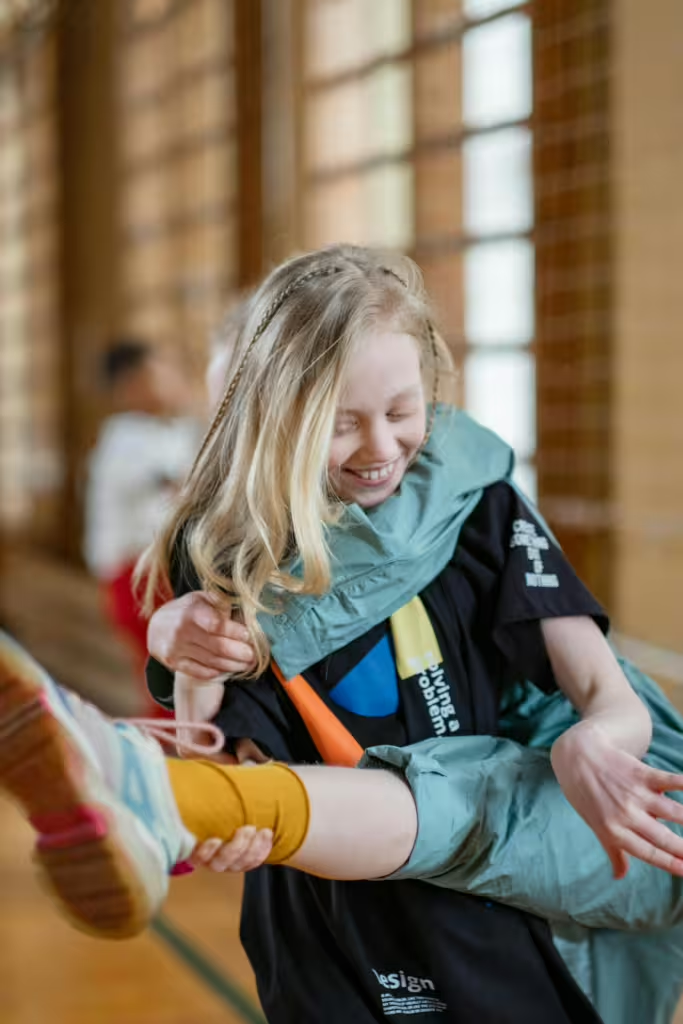
Cultured Athlete Says…
As you can see, sports need to be as inclusive as possible. Regardless of the physical, social, financial, or emotional pressure that children face in this world, every single one of them deserves the opportunity to play, grow, and thrive through sports. This is why inclusive sports programs are so very important. These programs ensure that no child is left behind due to their physical ability, the financial barriers they might face, or any wrong-headed societal norms they are confronted with.
Remember, when schools, local governments, and organizations work together to remove barriers, they can empower children to lead healthier, more connected, and more confident lives! Any parents looking to get involved can start by researching local inclusive sports programs and advocating for more accessible options in schools. Parents can also support existing programs and help them gain a better foothold in their home communities.
If you or your child finds yourself struggling with exclusion, don’t lose heart. Whether through existing programs or your own tenacity, you can make a change for the better. We live in a time where everyone has a voice and using that voice for the good of disenfranchised or downtrodden people is an excellent way to enact positive change. Advocating for others is also a great way to show your children how powerful their own voice can be, so when the time comes for them to use it, they do so with confidence and pride.
Discover more from CulturedAthlete
Subscribe to get the latest posts sent to your email.

